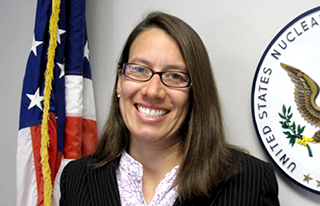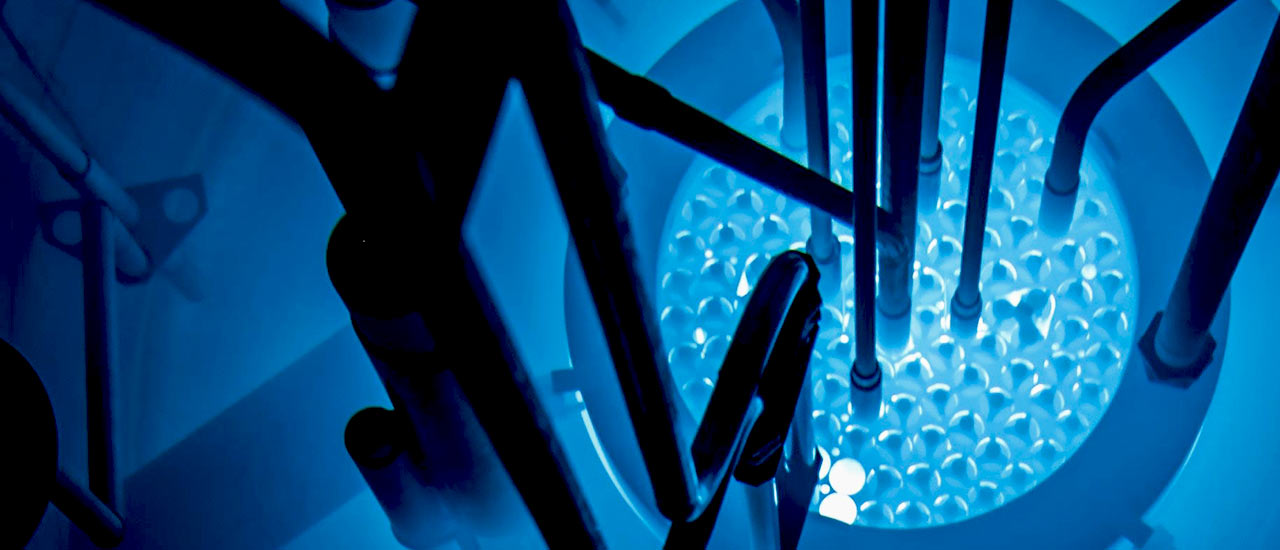Careers
An advanced degree is required for most career paths in radiation protection, and earning your radiation health physics master's degree will put you in prime position to establish a foothold in the industry. The Health Physics Society projects a shortage of radiation safety professionals for radiation related organizations including federal, state and local environmental protection agencies; medical care facilities; nuclear reactor sites; national laboratories; and private consulting.
Job market outlook
Use the interactive tool on this page to discover employment trends, top occupations and salary details for professionals who have skills related to radiation health physics. Please be aware that completing a program related to the job market information shown here does not guarantee employment or a specific salary.
Responsibilities for radiation health physicists

Laura Micewski was looking for fulfillment at work, and she wanted her GI Bill to help. Then she found Oregon State’s Radiation Health Physics program online. Read more »
- Ensure beneficial uses of radiation and radioactive materials
- Study the effects of radiation on the environment
- Measure radioactivity in water, soil and air
- Ensure the safe use of medical/dental diagnostic equipment
- Design radiation detection equipment
- Develop software to estimate radiation dose from source exposure
- Calculate safe, effective doses of radiation for cancer patients
- Provide radiation protection training
Important dates
These are the start dates for OSU’s next two terms. However, this program only admits for fall term.
See our academic calendar for our full quarter term schedule.
Degree quick facts
* Oregon State University is on a quarter-term system. There are four quarters each year and classes are 11 weeks long. This program's 45 quarter credits are equal to 30 semester credits.
† Based on current tuition rates. No additional charge for nonresident students. Does not include course materials and associated fees and expenses.
‡ You can complete all or nearly all requirements of this program online. View the curriculum.
Find application deadline
View required or recommended deadlines for your student type on our application deadlines page.
Ready to apply?
Once you've gathered the information you need to know before you apply to Oregon State University, take the next steps.



